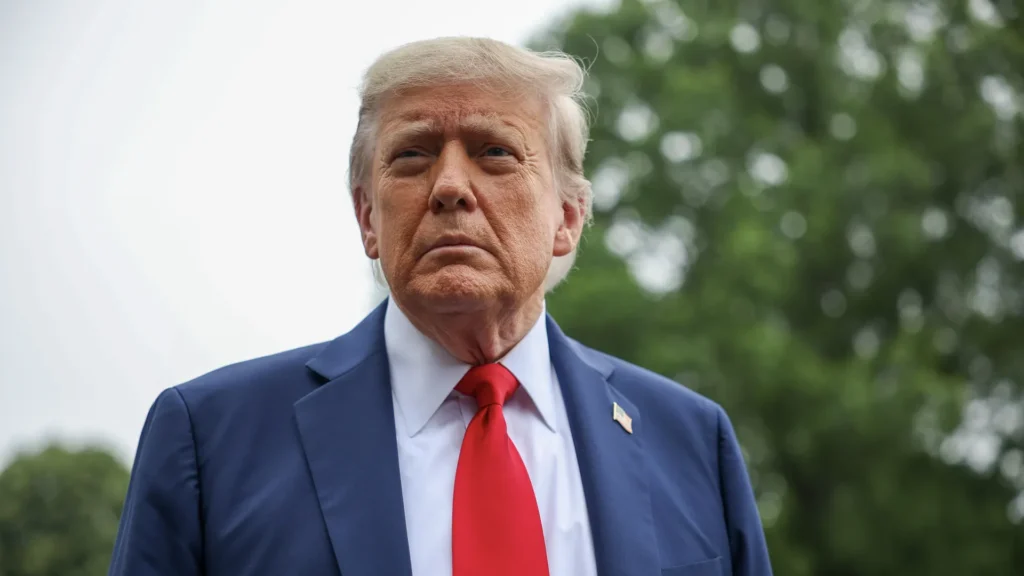1. Breaking News: U.S. Strikes Iran’s Nuclear Program
On June 21, 2025, President Donald Trump confirmed that U.S. forces launched airstrikes on three major Iranian nuclear enrichment facilities—Fordow, Natanz, and Isfahan (businessinsider.com). He termed the operation “a spectacular military success” and said the sites were “completely and totally obliterated” (thetimes.co.uk).
2. How It Happened: Tomahawks, B-2 Bombers & Bunker-Busters
The mission deployed B-2 Spirit stealth bombers carrying six 30,000-lb GBU‑57 bunker-buster bombs on Fordow, along with Tomahawk cruise missiles targeting the others (businessinsider.com). U.S. military planes returned safely to base after completing the strike (politico.com).
3. Strategic Shift: From “Two‑Week Delay” to Immediate Strike
Just days earlier, Trump announced he’d take two weeks to decide on involvement, allowing diplomatic space (thedailybeast.com). However, the administration swiftly pivoted—B-2 bombers left Missouri undetected, catching allies and adversaries off guard (en.wikipedia.org).
4. Official Reactions: Washington, Tehran & Tel Aviv
- Trump’s Address:
Declared the bombings “historic,” stating, “NOW IS THE TIME FOR PEACE!” He warned Iran: “peace or tragedy” (cbsnews.com). - Iran’s Response:
Confirmed strikes at Fordow but reported no radiation contamination or civilian harm (reuters.com, aljazeera.com). Foreign Minister Abbas Araghchi called it a violation of international law (aljazeera.com). - Israel’s Endorsement:
PM Netanyahu praised Trump’s “bold decision,” calling it transformative (atlanticcouncil.org, thetimes.co.uk). - Global Alarm:
Mixed reactions from U.S. lawmakers, UN Chief Guterres, and global leaders urging de-escalation (en.wikipedia.org).
5. What Were the Targets?
- Fordow (Fordo): Deeply buried uranium enrichment site, hit with multiple bunker busters (indiatoday.in).
- Natanz: Central to Iran’s enrichment chain, struck by GBU bombs and missiles (reuters.com).
- Isfahan: Nuclear technology facility hit by cruise missiles (en.wikipedia.org).
These strategic sites are essential to Iran’s nuclear program. The U.S. aimed to disable Tehran’s ability to restart enrichment swiftly.
6. Experts Respond: Mixed Reactions
- Atlantic Council:
Called it a “spectacular military success,” yet warned of regional escalation (reuters.com, atlanticcouncil.org). - Vox:
Defined this as Trump’s first direct military war—dramatic shift from campaign vows (vox.com). - Reuters/POLITICO:
Noted legal concerns over bypassing Congress and unclear long-term damage assessments (thedailybeast.com).
7. What Happens Next? Regional Risks & Tensions
- Iran likely to retaliate—missile threats to U.S. bases or shipping in the Gulf .
- Risk of broader war involving proxy groups across Iraq, Syria, Lebanon, and Yemen .
- Diplomatic fallout: UN, Russia, and China call for restraint. Some U.S. lawmakers demand legal oversight .
8. U.S. Law & War Powers Debate
Critics argue Trump bypassed Congressional authorization, prompting concerns over constitutional limits. Supporters claim national security demands swift action . Domestic legal wrangling and War Powers invocation are expected.
9. Strategic Rationale: Why Bomb Now
- To degrade nuclear capability and pressure Iran politically.
- Solidarity with Israel after its own campaign on June 13 (en.wikipedia.org).
- Domestic signaling to Trump’s base with action and resolve.
10. Campaign 2025 & Trump
This marks Trump’s highest-stakes foreign policy move in his second term, flipping campaign rhetoric from “America First” to active U.S. war involvement . The attack may resonate with conservative voters, but isolationists and moderates raise alarm over possible war expansion.
11. FAQs
Q: Did the US bomb Iran?
A: Yes—U.S. forces attacked Iran’s Fordow, Natanz, and Isfahan nuclear sites on June 21 (reuters.com).
Q: Why did the US strike now?
A: To act decisively after Iran’s nuclear escalation and to support Israel’s earlier strikes (en.wikipedia.org).
Q: Will Iran retaliate?
A: Iranian leaders have promised responses; risk to U.S. troops and regional allies is increasing (wsj.com).
Q: Is this war?
A: This is a significant escalation, though Trump is avoiding the term “war,” citing targeted military objectives (vox.com).
12. Final Analysis: A Turning Point
The U.S. bombing of Iran marks a historic shift in Middle East conflict dynamics. With strategic targets destroyed and higher tensions looming, the next moves in this dangerous game will determine whether peace talks advance or regional war ignites.
13. Your Voice Matters
What do you think? Was the strike justified—or reckless? Will Iran retaliate? Share your views in the comments and subscribe for live updates.


